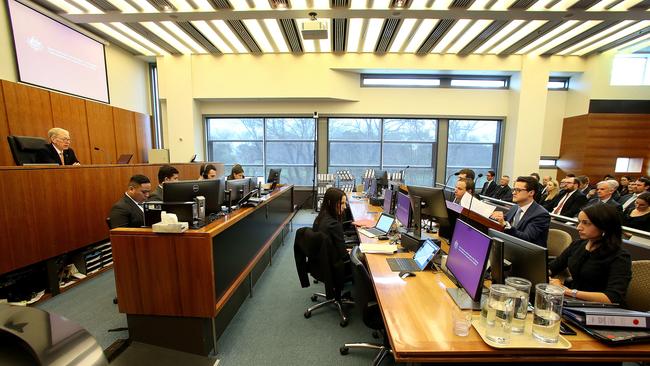Super to be most significant chapter in the banking royal commission saga
In the weeks ahead we are going to find out what sort of a system we have unleashed with compulsory superannuation.

Until now, the royal commission has heard about people cheated and deceived who had chosen to deal with the financial services industry. But in super, there is no choice but to hand your money over: you are legally compelled to engage with the system.
In the weeks ahead, we are going to find out what sort of a compulsory super system we have unleashed, where the headline numbers are widely publicised but the fees are buried in fine print.
Take the ongoing issue of ‘‘fees for no service’’. As NAB’s Paul Carter took the stand yesterday, QC assisting the royal commission Michael Hodge knew he was playing to the biggest gallery of all — the millions of Australians who must by law hand over 9.5 per cent of their earnings to a super fund.
And yesterday those super funds, especially NAB, were looking decidedly cagey as senior managers struggled to explain why it was necessary to continue charging customers often getting no service despite paying ongoing charges in key products.
Similarly, it is clear ‘‘grandfathered commissions’’ are often money for jam inside the major banks. These are commissions that we were led to believe had been banned four years ago. But a loophole in the 2014 legislation allowed existing arrangements to keep going. Again here, customers were charged for services they may or may not have received.
One defence put forward by NAB, but it might have been just about any bank, is seemingly contentious issues such as fees and commissions are not a problem as long as they are disclosed. This is a foolhardy line of defence that is utterly discredited.
Separately, on one aspect of grandfathered fees where NAB’s Carter attempted to explain how an arrangement where charges were once again being deducted from accounts that might not have received any service, Kenneth Hayne had to interrupt proceedings suggesting ‘‘he did not understand’’.
A cynic might suggest you are not supposed to understand — you are supposed to fall into line and pay the fee. Certainly, if Justice Hayne can’t fathom the circuitous arguments of senior bank executives, you can take it for granted that the average worker cannot either.







It took only a few hours in the first day of the ‘‘superannuation session’’ at the financial services royal commission to realise this is going to be the most significant chapter in the saga.